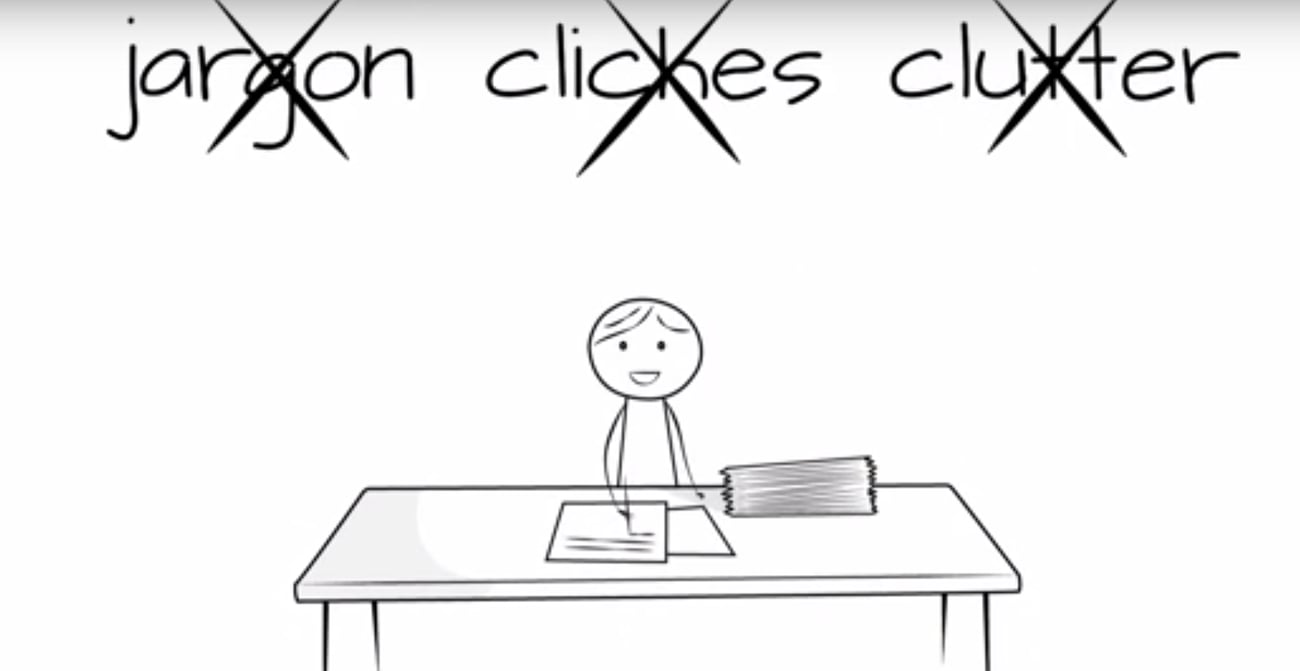
One of the easiest and quickest ways to tell a legitimate email from a spam one is in the quality of the writing. Receive a message that starts “Gretings, oh esteemed customer” and you can be pretty sure it should go straight in the recycle folder. Same with websites. A badly-written site often equates with a dodgy company, in the mind of a potential customer, at least.
But while it’s clear to most of us what other people’s bad writing looks like, Wellington-based plain English champion Lynda Harris reckons most business owners and managers are blissfully unaware of what their own poor writing is costing them.
Harris, founder and CEO of Write, has spent almost 25 years trying to make organisations write in ways their stakeholders (and the average human being) can understand. Her recent book Rewrite: How to overcome daily sabotage of your brand and profit doesn’t explain how to write well, but why it matters to business.

Image: Lynda Harris at her book launch at Unity Books, Wellington
These are four ways Harris believes your writing could be damaging your bottom line:
1. Inefficiency and waste
Businesses lose a staggering amount of productive time annually through bad writing. Whether it’s reworking tedious reports that miss the point, clarifying badly phrased emails, or answering questions caused by poorly written forms, the losses can be huge.
Awareness is the first step. Estimate how many hours each week you spend correcting other people’s work, then multiply that number by your hourly rate. Surprised? (And that’s just you. What about your colleagues’ time?)
Work out the cost of poorly written emails at your place by using the calculator at http://www.rewritebook.com/calculator.html.
2. Allowing a gap between your desired brand image and reality
“The moment when a document is read is either a brand-damaging, or brand-enhancing, moment,” says Christopher Balmford, an Australian lawyer who specialises in plain language. If your reader likes what they read, and it aligns with what they feel about you, your document helps to strengthen their link to you. If the voice of your document doesn’t fit with the brand values you promote, you may lose that client. That damages your reputation, and costs you plenty.
Time to do a check of your brand voice. Write your brand values as a checklist. Then do a quick audit of both your top-level documents (eg annual report, glossy promotional materials, home page), and 10 pieces of ‘everyday’ writing (emails, letters, updates, and other web pages). How big is the gap between your brand ideals and reality?
3. Ignoring business risks connected with writing
Poor writing is a little-recognised business risk. Ill-considered words have been responsible for a raft of business issues including major PR crises and embarrassment, lost credibility, lost accounts, and even lawsuits. Another constant threat is the likelihood of good people leaving because they’re spending hours of personal time fixing up their team’s or their colleagues’ shoddy work.
4. Failing to recognise opportunities
When organisations focus on effective writing, the positive effect on the bottom line can be startling. New Zealand examples include a proposal win rate jumping from 20% to 70%; a revised government form saving 50,000 staff hours and $1.5 million a year; and improved email writing saving over $5,500 per staff member each year. But these successes also show the lost opportunities to that point. How much money could these organisations have saved or generated if they had focused sooner on clear writing? What opportunities are you overlooking to improve your bottom line?
Like it or not, the way your people write affects your organisation’s reputation, effectiveness, and profit or costs at almost every moment. Investing in good writing processes across your organisation can bring a handsome return on investment.
Rewrite: How to overcome daily sabotage of your brand and profit by Lynda Harris.




